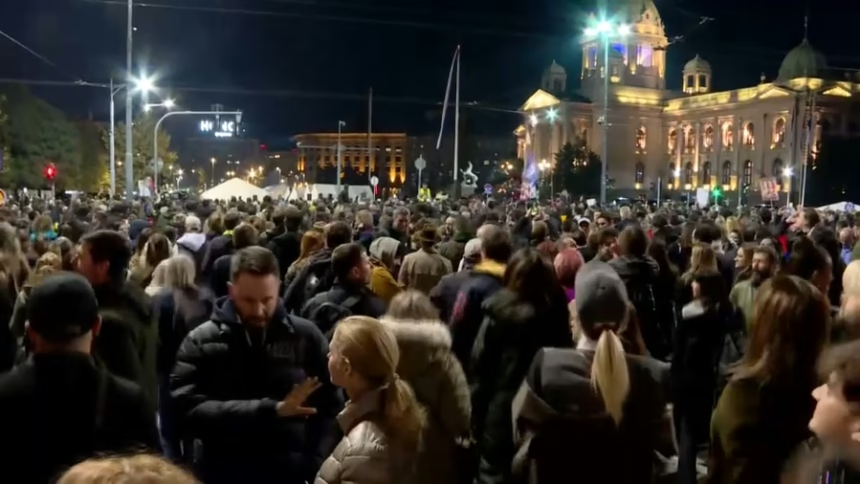Estimates from Serbia’s Ministry of Interior (MUP) regarding the number of participants at public gatherings have shown drastic discrepancies compared to independent analyses by the Archive of Public Gatherings, pointing to systematic manipulation of data for political purposes.
Professor Vladimir Nikolić, founder of the Archive of Public Gatherings, notes that MUP estimates are three to four times higher for pro-government rallies organized by the Serbian Progressive Party (SNS), while estimates for protests and opposition gatherings are three to four times lower. For example, at rallies supporting President Vučić and Dijana Hrki in front of the National Assembly, MUP claimed 47,500 attendees at the SNS rally, whereas the Archive counted around 14,000. At the student and citizen protest, MUP reported 2,600 participants, while the Archive’s count was approximately 10,000.
Nikolić explains that MUP has never published its methodology for counting participants, and its figures are often unfounded and contradicted by available footage. “Looking at aerial footage, it is clear that the numbers don’t match reality. MUP manipulates by showing photos before the crowd reaches its peak and then spreads propaganda through regime-controlled media,” Nikolić said.
In contrast, the Archive of Public Gatherings uses a transparent methodology: it individually marks every participant in photos and videos, including estimates of maximum attendance at the peak of the event. These methods, publicly available, reveal that MUP’s figures are politically motivated and serve as a propaganda tool for the ruling party, rather than providing objective information to citizens.
Manipulation examples are also evident in commemorative events in Novi Sad and mobile protests, where MUP and regime media report numbers that do not reflect actual attendance, while independent estimates show much higher or lower numbers depending on the political context.
Nikolić concludes that this behavior by MUP is problematic for democratic society, as a state institution, instead of informing citizens, actively participates in disinformation and political propaganda for the ruling party.







